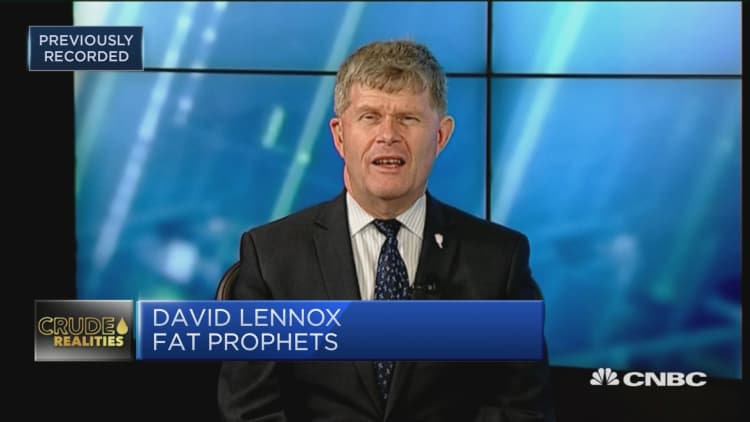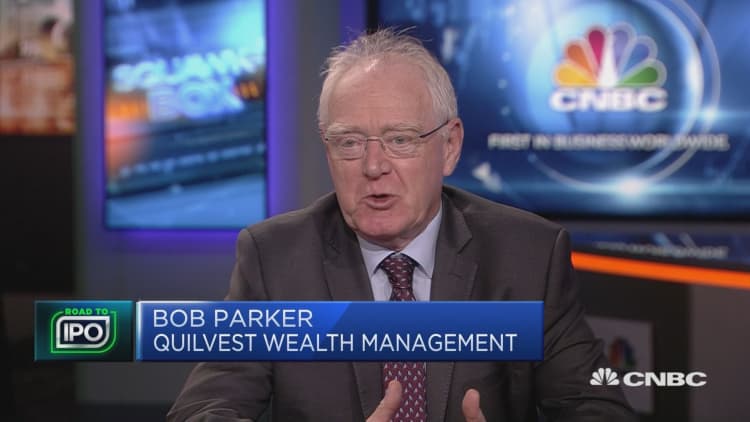Saudi Aramco may have finally fired the starting pistol on its initial public offering (IPO), but some analysts still believe investors should think carefully before jumping on board.
The company, the most profitable in the world, announced Sunday that it's planning to list on its local stock market, the Tadawul, in December.
But a lack of details on the listing, which eventually could be the largest on record, has left some analysts cold. And they believe there are plenty of reasons why international investors should be wary.
Lack of details
Aramco said Sunday that "the final offer price, number of shares to be sold and percentage of the shares to be sold will be determined at the end of the book-building period." The company's IPO prospectus will be released on November 9.
As such, analysts were left speculating on the finer details of the offering, and these could make all the difference to investor interest, they said.
"Yes, it's (the IPO has) been confirmed but at this point in time they haven't really given us a set timetable as to when the transaction is going to get under way or complete," David Lennox, resources analyst at Fat Prophets, told CNBC Monday.
Previous reports have suggested the kingdom will list 1% to 2% of Aramco on its local stock exchange, and then list another slice on an international exchange at a later date — with a total public sale of roughly 5% of the company. Exchanges in New York, London, Hong Kong and Tokyo have all been vying for the international listing.
Lennox said the valuation could make all the difference to investors. "We've also not seen any form of valuation, (although) we've seen quite wide numbers from $1 trillion to $2 trillion. We think it's about $1.4 trillion so you can take your pick," he said.
"The other factor we don't know at the moment is just how much of it are they going to float? … So there are a lot of questions we've yet to really have answered before one can say we're going to see this IPO go ahead," he said.
Dividend
The IPO has been closely-anticipated in the last few years but has been delayed amid oil price volatility, valuation uncertainty, the location of the share listing and geopolitical events such the drone and missile attack in September.
The public listing could be the world's largest, and if it achieves a valuation of $1.5 trillion Saudi Aramco would far exceed the market capitalization of giants like Apple and Microsoft.
The company said one of its priorities was delivering "sustainable and growing dividends through crude oil price cycles" and that "subject to the board's discretion after consideration of a number of factors, the board intends to declare aggregate ordinary cash dividends of at least $75.0 billion with respect to calendar year 2020, in addition to any potential special dividends."
How far that dividend goes will be subject to the amount of shares the company decides to list. "We've got the dividend amount but we just don't know the amount of shares," Lennox said, noting that "if they issue a bucket load of shares then that dividend amount is not going to go far."

Meanwhile, analysts at Bernstein noted that it was hard to evaluate a company like Aramco, which it likened to a "monster oil" company.
They cite the fact that Saudi Aramco is the most profitable company in the world — in 2018 its net income was $111 billion, five times bigger than Exxon or Shell. The analysts also note it has an oil reserve life of 52 years and its reserves are the cheapest to extract.
"What's fair value for a company with access to 201 billion barrels of proven oil reserves, produces 1 in every 8 global oil barrels, is instrumental in supporting oil prices and owns the world's 4th largest integrated Downstream system pointing at Asia? While we're used to valuing Big Oil, Aramco is Monster Oil, so this is literally the trillion-dollar question," Bernstein Senior Analysts Oswald Clint and Neil Beveridge said in a note Monday.
Geopolitics
Geopolitical factors, like Saudi Arabia's tense relationship with regional rival Iran, could also dampen investor sentiment.
"If you look at it from the perspective of international investors, there are obviously concerns," Bob Parker, investment committee member at Quilvest Wealth Management, told CNBC's "Squawk Box Europe" Monday.
"Do you want to invest in a region where the relationship with Iran is fraught?," he asked. "We've also had infrastructure risk related to (the drone and missile attack) a few months ago and a large part of Saudi Aramco infrastructure being damaged."

In addition, Parker said the valuation might also be a factor adding to international investors' concerns.
"International investors might say well perhaps I need a discount to warrant my investment in Saudi Aramco … But that discount doesn't seem to be there," he said. Parker added that he also believed oil prices were going to be subject to downward pressure.
"All of those factors I think means that this is going to be a difficult IPO," he warned.
Oil prices
Oil prices slumped in mid-2014 amid a glut in global supply and lackluster demand. Prices fell dramatically and major global oil producers like Saudi Arabia, and other OPEC producers decided to cut back on production to help stabilize supply and demand, and prices.
U.S. shale producers have not cut back production meanwhile, and there are still concerns over supply dynamics and demand, particularly amid an ongoing trade war between the U.S. and China that has dampened global growth. On Monday, oil prices were trading at $62.22 per barrel for Brent crude and $56.62 for West Texas Intermediate (WTI). Both were comfortably over $100 a barrel around five years ago.
Analysts like Fat Prophets' David Lennox feel that the IPO could be coming too late; "We think this IPO is probably several years too late. You've now got in the U.S. a well-established competitor producing 12 million barrels of oil a day whereas several years ago that wasn't even around," Lennox said.
"There's a lot of questions that we'll have to sit down and look at," he added.


